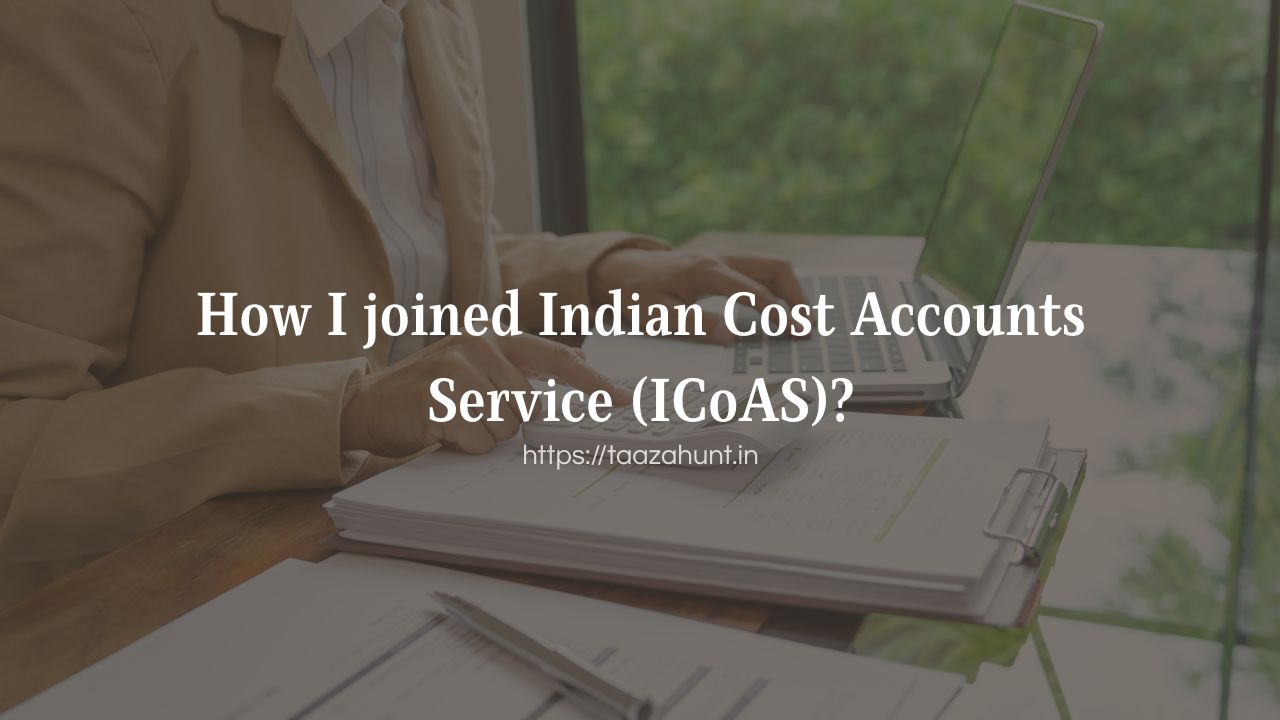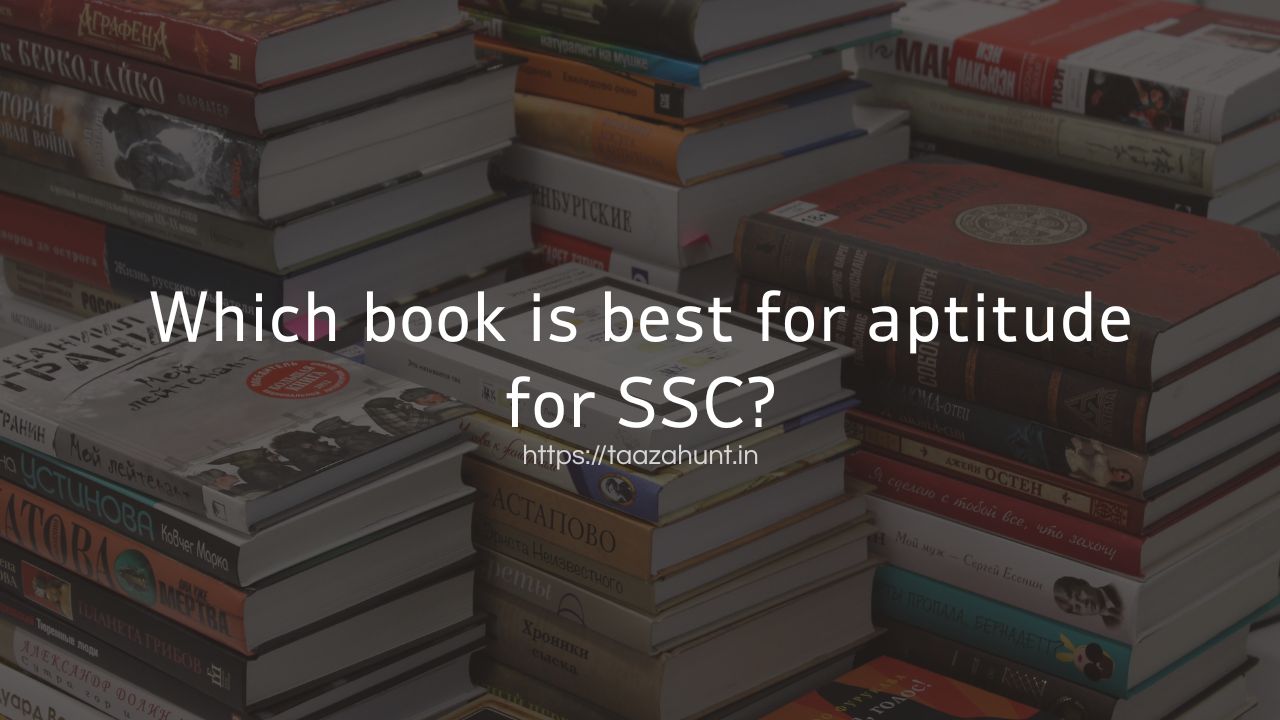How I joined Indian Cost Accounts Service (ICoAS)?
How I Joined Indian Cost Accounts Service (ICoAS): My UPSC Journey to a Prestigious Government Career
Introduction
The Indian Cost Accounts Service (ICoAS) is one of the elite Group ‘A’ services in India, a specialized cadre under the Indian Government responsible for cost auditing, pricing analysis, and financial management in public sector undertakings (PSUs) and various ministries. For most aspirants, cracking the Civil Services Examination (CSE) conducted by the Union Public Service Commission (UPSC) is the gateway to dream careers like IAS, IPS, IFS — and yes, ICoAS.
In this blog post, I’ll take you through my personal journey — how I came to know about ICoAS, the strategy I used to prepare for the UPSC exam, and the exact steps that led to my selection in this esteemed service. This post is meant for UPSC aspirants, finance enthusiasts, and students who wish to explore lesser-known but powerful career opportunities in the government sector.
What is the Indian Cost Accounts Service (ICoAS)?
The Indian Cost Accounts Service is a highly specialized central civil service that comes under the Ministry of Finance. Officers of ICoAS are responsible for pricing, cost audit, tariff analysis, budgeting, and financial evaluation of government projects. They work in various ministries like:
- Department of Expenditure
- Ministry of Railways
- Ministry of Defence
- Ministry of Commerce & Industry
- Public Sector Undertakings (PSUs) like BHEL, NTPC, etc.
Key Roles of an ICoAS Officer:
- Advising on pricing policies
- Conducting cost-benefit analysis of schemes
- Monitoring the performance of PSUs
- Reviewing the costing practices of public projects
- Supporting budgetary controls
The service is highly technical and ideal for those with a background in cost accounting, economics, or commerce.
My Background Before UPSC
I come from a middle-class family based in Gujarat. I did my graduation in Commerce (B.Com with specialization in Cost & Management Accounting) from a reputed college. After college, I qualified as a Cost and Management Accountant (CMA) from The Institute of Cost Accountants of India (ICMAI).
While preparing for CMA, I became fascinated by public finance, budgeting, and policy-making. This exposure piqued my interest in Indian economic administration. My mentors often spoke about prestigious services like Indian Economic Service (IES), Indian Audit & Accounts Service (IA&AS), and Indian Cost Accounts Service (ICoAS). Among these, I found ICoAS aligned perfectly with my education and career goals.
Discovering ICoAS as a Career Option
Most UPSC aspirants dream of IAS, IPS, or IFS. But I wanted something technical, finance-oriented, and impactful. While researching, I discovered that ICoAS is one of the services allocated through UPSC Civil Services Exam. However, it’s rarely discussed in coaching centers or forums.
Here’s how I stumbled upon it:
- UPSC CSE Notification: I went through the list of services mentioned in the official UPSC notification.
- Contacting Previous Toppers: I reached out to previous UPSC qualifiers via social media and got insights into specialized services.
- RTI Requests: I filed an RTI to DOPT (Department of Personnel & Training) for past years’ ICoAS cutoffs and postings.
- ICoAS Website: The official site and ICAI newsletters offered valuable information.
By now, I was convinced: if I crack UPSC CSE and get a good rank, I would opt for ICoAS as my first choice.
My UPSC Preparation Strategy
1. Deciding to Appear for UPSC
After qualifying CMA, I took 6 months to prepare a roadmap for UPSC. Since I already had a strong background in cost and financial management, I chose Commerce and Accountancy as my optional subject.
2. Study Resources
- GS Paper I-IV: NCERTs, Laxmikanth (Polity), Spectrum (History), Economic Survey, PIB, and Ramesh Singh for Economy.
- Optional Subject (Commerce & Accountancy):
- Financial Accounting by T.S. Grewal
- Cost Accounting by M.N. Arora
- Taxation by Singhania
- Strategic Financial Management (SFM) notes from CMA
- Current Affairs: The Hindu, Indian Express, Yojana, and monthly compilations.
3. Coaching or Self Study?
I joined a coaching center in Delhi for GS foundation and test series. However, for the optional subject, I self-studied using my CMA background and practiced extensively.
4. Time Table and Revision
- Daily 8-10 hours of study
- Weekly revisions
- Monthly mock tests
- Peer discussions on forums like InsightsIAS and ForumIAS
My UPSC Journey: Prelims, Mains, and Interview
UPSC Prelims
I appeared for UPSC Prelims with utmost focus on eliminating options, using test series like Vision IAS, and mastering CSAT through daily practice.
UPSC Mains
Commerce & Accountancy optional helped me fetch high marks. My writing was technical, structured, and rich in examples. I focused on presenting concepts with real-world examples, especially from the public sector.
Interview (Personality Test)
The panel was curious about:
- Why I preferred ICoAS over IAS or IPS
- My background as a CMA
- Views on public sector pricing
- Role of cost audits in preventing financial leakages
I confidently explained my passion for public finance and governance efficiency, which helped me make a strong case.
Final Result: Getting into ICoAS
When the results were declared, I secured a rank within the top 300. My preference list was:
- ICoAS
- IA&AS
- IRTS
- IDAS
And I was happily allocated to the Indian Cost Accounts Service. It was a dream come true!
Training and Life After Joining ICoAS
Training Institutes:
- LBSNAA Mussoorie: Foundation course
- NIFM (now Arun Jaitley National Institute of Financial Management): Professional training
- On-the-job training at different ministries and PSUs
The training was intensive and insightful. We learned public finance, cost auditing techniques, government accounting systems, project finance, and tariff policy.
Life as an ICoAS Officer
The job involves financial advisory roles, interacting with top officials, working on government pricing policies, and overseeing the performance of PSUs. You get:
- Good work-life balance
- Stable posting mostly in Delhi or major metros
- Technical and analytical job responsibilities
- Opportunities to work on national financial reforms
ICoAS officers are often deputed to Ministry of Defence, Railways, or even international organizations for specialized work.
Why ICoAS is a Hidden Gem
- Technical Edge: Perfect for finance and accounting professionals
- Policy Impact: You influence how public money is spent
- Career Growth: Deputation to international bodies like World Bank or IMF is possible
- Less Competition: Fewer aspirants opt for this due to lack of awareness
FAQs: Indian Cost Accounts Service
Q. Is ICoAS better than IAS?
Not necessarily better — just different. If you love finance, costing, and data-driven policy, ICoAS is ideal. IAS is generalist; ICoAS is specialist.
Q. Can CMAs apply for UPSC?
Yes, and they have a clear advantage in Commerce & Accountancy optional.
Q. What’s the cutoff rank for ICoAS?
It varies yearly, usually between 250–600 in general category.
Conclusion: My Message to Aspirants
If you’re someone from a CMA, CA, or Commerce background, don’t limit your vision. The Indian Cost Accounts Service is a powerful platform to contribute meaningfully to public governance. You don’t need to chase only IAS or IPS — India needs finance experts too, and ICoAS offers exactly that.
The journey to UPSC is challenging, but it’s worth every ounce of effort. Prepare well, stay consistent, and don’t be afraid to choose a less-traveled but highly rewarding path.
Want More?
If you’re preparing for UPSC with a commerce background and want guidance on ICoAS or optional preparation, feel free to comment below or reach out via my contact page. I’d love to help!














Post Comment
You must be logged in to post a comment.